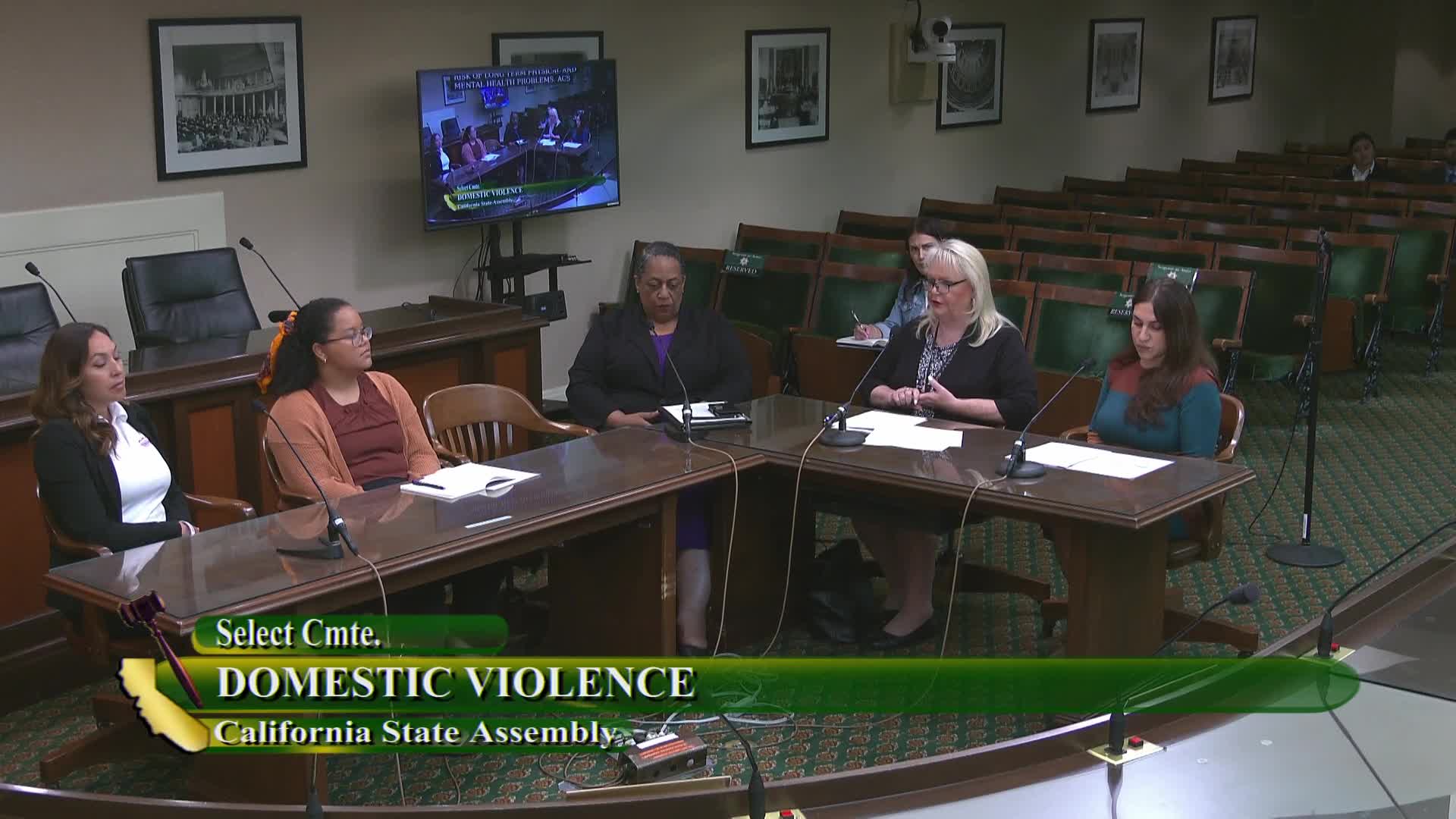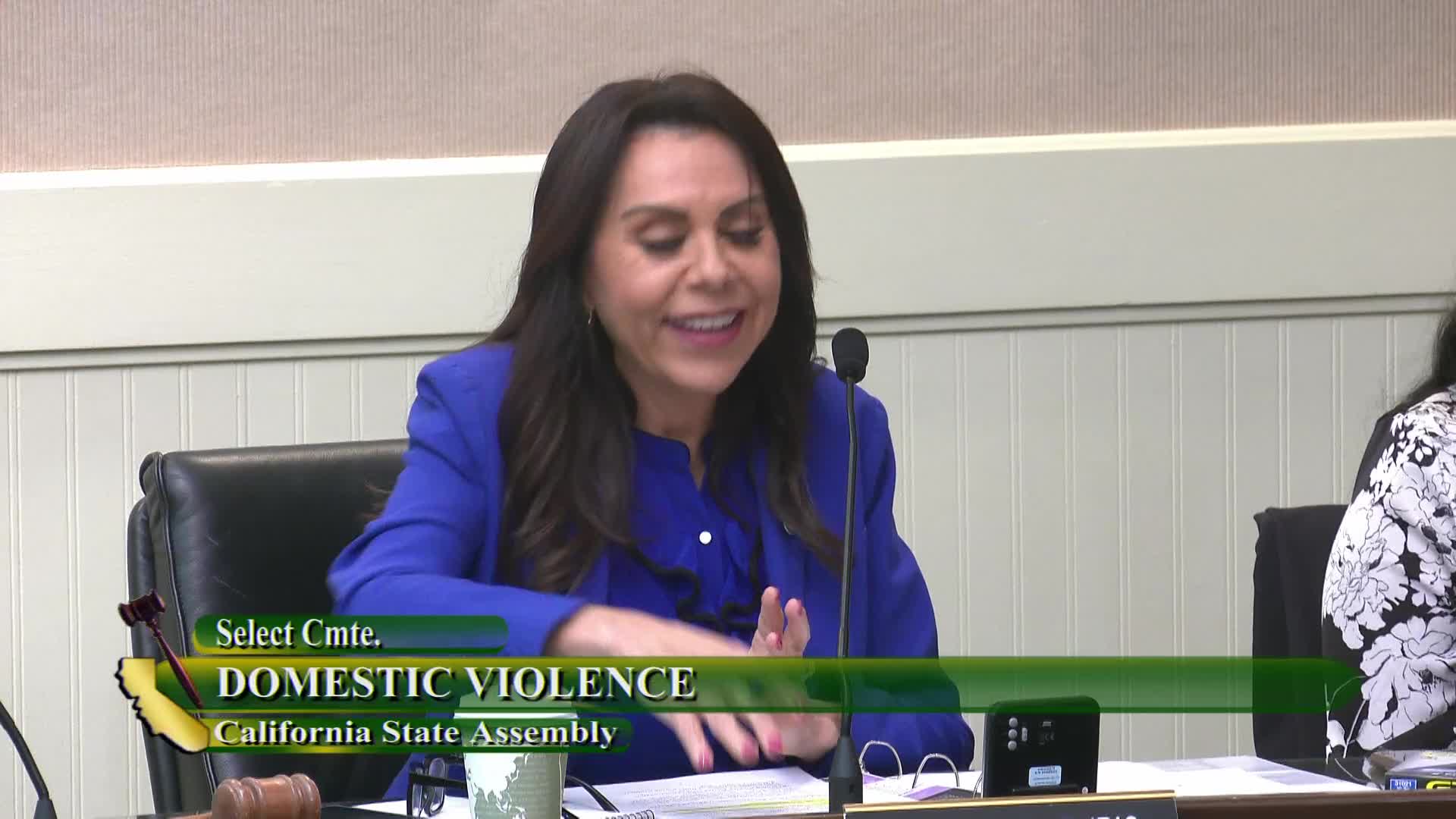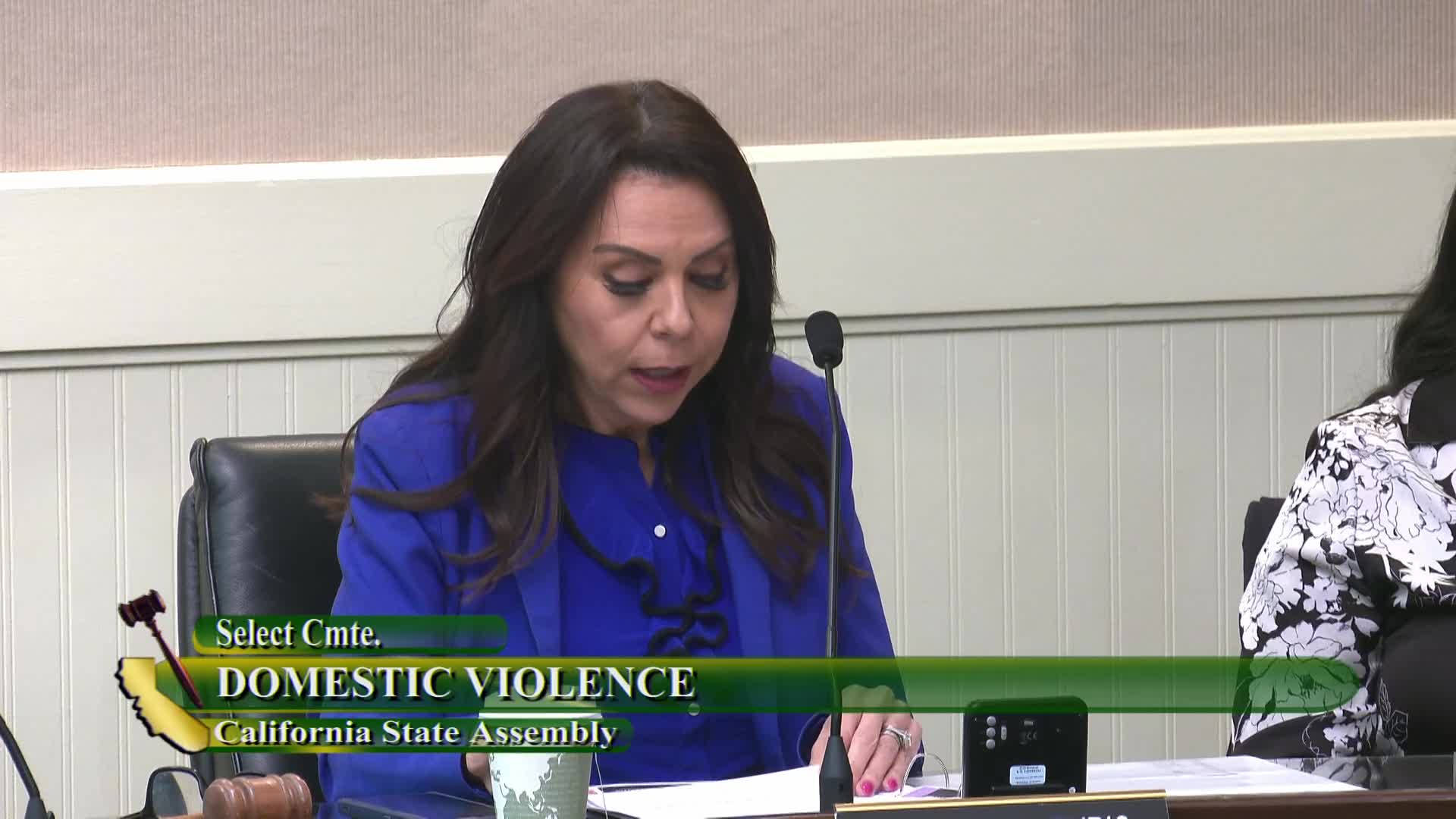Article not found
This article is no longer available. But don't worry—we've gathered other articles that discuss the same topic.

Advocates urge sustained prevention funding, improved implementation of Healthy Youth Act and reconsideration of statute timelines

Panelists describe child trauma, rising strangulation reports and Family Justice Center services

